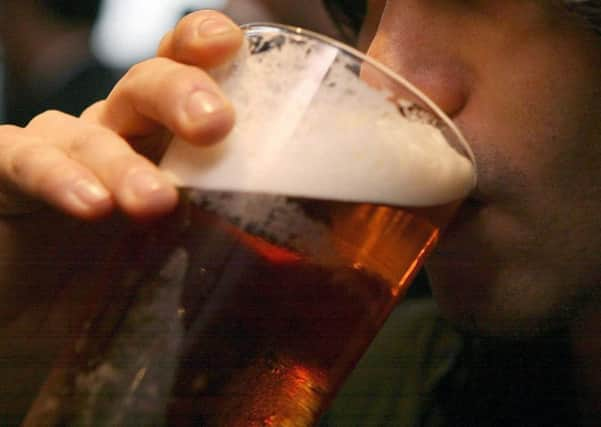Jayne Dowle: January, sick and tired of haranguing of me


I love her dearly, but I keep out of her way. She turns into a different person for four long weeks. Boring, obsessive and, dare I say it, slightly sanctimonious.
By February, and then for the rest of the year, she’s back to her normal rumbustious self. I breathe a sigh of relief. I can’t see the point of her annual fast at all. Where’s the fun in banning everything that makes you happy and relaxed for a month, only to indulge in it all again once the calendar flips to February?
Advertisement
Hide AdAdvertisement
Hide AdThat’s why I’m greeting the launch of Dry January, a nationwide campaign to go booze-free for the month, with even more than my customary degree of scepticism.
I know its aims are laudable. To cut down on alcoholic units and the “empty” calories they bring, and to save money. Most of us do drink more than is good for our health. I agree, it’s time we all took a long, hard look at our habits.
At the very least, you should ask yourself – can you go a whole day without a drink? If you can’t, then you’re in trouble. And I must say, perhaps professional advice would be of more practical help than trying to address the issue yourself. The psychological and physical effects could be seriously unpredictable.
A whole month? What’s the reasoning behind that? It’s all about “starting a conversation” about alcohol, apparently. Does this mean we ignore the subject for the other 11 months? Some of the 4,500 people who took part in Dry January last year say that they felt fitter, richer and slept better booze-free. Just a thought, but I wonder what they felt like by July?
Advertisement
Hide AdAdvertisement
Hide AdI accept that alcohol dependency is a serious problem, but I don’t think my attitude is irresponsible. I’d say that it’s the opposite. Taking the moral high ground for a month is all very well, but being sensible about alcohol is a long-term commitment, not a short-term fix.
This initiative is nothing more than a publicity campaign with a heavy moral obligation. Surely it would be better for the campaigners to devise a programme of year-round moderation than to pressurise people in this way? It smacks far too much of American-style evangelism to me. We’re still a relatively civilised country. Can’t we make up our own minds without having our drinking arms twisted up our backs? And really, is there no dignity left in the world? Shouldn’t a decision to address unhealthy habits be a personal matter, rather than a public crusade?
Over-sharing is a bad enough curse of modern life. Invasion of privacy and personal space are even worse. Dry January is big on corporate involvement. Alcohol Concern, the organisation behind the campaign, is trying to get companies and local councils on board to persuade their staff to take part.
I’d say work is stressful enough without the added pressure of having to account for your alcohol consumption in front of your colleagues. And it smacks nastily of Big Brother. We give enough of ourselves to our working lives already. Our private time should remain just that – private.
Advertisement
Hide AdAdvertisement
Hide AdAlcohol Concern also suggests that those taking part should use social media to spread the word. Tell your friends that you have more self-control than them, in other words. Isn’t Facebook competitive enough without this to send us into a guilt trip? Just a warning, but if any of my pals decide to bore me with a diary of their temporary temperance habits, I will be tempted to defriend them, until February at least.
And, if it’s OK with you, I won’t be attending an afternoon tea party or an evening enjoying “mocktails”. These are some of the suggested alternative activities to having a nice glass of rosé or a pint of real ale. I know some of these events will raise money for charity and it would be wrong to knock that.
I must say, though, the thought of fully-grown adults planning and enjoying such soirées makes me feel queasier than a night on cherry brandy. Nothing would make me yearn for a drink more than its enforced absence. And I’m saying this as one who took her own decision to cut out nightly wine some years ago when I realised how much it was costing, in time, headaches and money. I did it by myself with the help of willpower and cranberry juice. I didn’t need a patronising voice-over to tell me to leave the wine in the cupboard and the corkscrew in the drawer.
And come on, lighten up. Isn’t January miserable enough already? We’re fighting the Christmas hangover from hell, a toxic mixture of bills, bad weather and a degree or two of seasonal affective disorder. It’s bad enough to be skint, cold and already exhausted at the return to work. Is taking a drink or two to ease us into the New Year really the worst thing we can do?